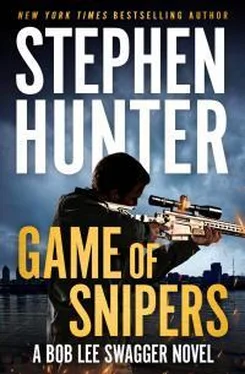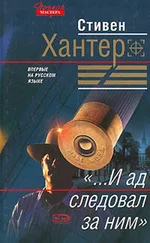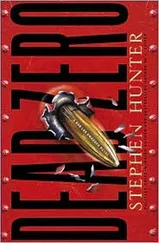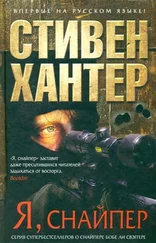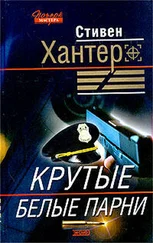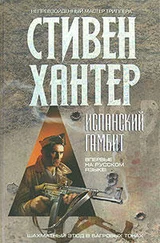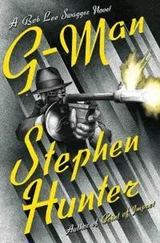At a certain point, it was time to break for dinner. But they didn’t break for dinner. Then it was time to break for coffee. They didn’t break for coffee either. They didn’t break for anything.
Finally, it was Chandler who said, “Everything we’re coming up with is vaguely possible but, for this reason or that, unlikely.”
“And your point is?” asked Nick.
“Maybe there’s a fundamental error at a crucial spot.”
“Did you hear that, Mr. Gold?”
“I did, and I think she has a point. But the question would have to be, at what crucial spot?”
“Well,” Chandler said, “the servo mechanism that puts possibilities before us is the Secret Service master schedule, right?”
“Yes.”
“Of all the attributes, that seems the most fragile. I mean, Swagger measured the yardage. That’s a hard figure, empirical, unarguable. All the other things — the weather, the wind, the angles, all that stuff — is hard data. But the master schedule is assembled by people acting on information from other people. People talking to other people often have motives in the mix, even unconsciously, and there’s miscommunication, it’s imperfect, any of a dozen things can go wrong.”
“All this is true. Do you want to call Secret Service and lean on them to recheck the schedule?”
“Here’s my thought,” she said. “Maybe what’s upcoming isn’t considered a Secret Service enterprise. You know, requiring special planning, the movement of assets, additional personnel, ground recon, prior coordination with local authorities. It’s not special. It’s normal, run-of-the-mill activity. So it’s not on any schedule.”
“How do we find out about it?”
“Do what Mr. Gold said: assume that it has to be something locked in early. It’s been on the sched early enough for the bad actors to plot to it. So, chronologize the data by the length of time on the schedule. Not the master schedule of appearances, just daily operations.”
“What have we got to lose?” said Nick.
He made the call, getting his Secret Service liaison out of bed. However, that guy was good at the job, got on the horn to SS operations — a 24/7 shop — and the larger schedule was emailed over to the FBI in a matter of minutes.
The data it contained hardly needed a program to be analyzed. It was just a matter of finding the earliest date of entry. That happened quickly enough.
“New York” was all it said, and ID’d a date a week further on, the next Thursday, the eighth of the month.
“So Mogul is going to New York on the eighth,” said Nick. “Why? And why would he know so far in advance? And why would it be ho-hum to Secret Service?”
Obviously, nobody had any knowledge.
The next call was to the FBI–White House liaison. It took a little longer because the guy was at the movies, he had to get home, go to his monitor, bring all this stuff up, check his numbers, call a good source in the White House, before he got back to them.
Nick took the call, listened, nodded, and looked up.
“Okay,” he said, “we have a date. We also have politics, ego, vanity, media manipulation, and personal enmity in the mix. In other words, any day in D.C. since 1784. On that date, Renegade is scheduled to give a speech here in D.C. At some Arab–American Co-Prosperity function, funded by the Saudis.”
“Who’s Renegade?” asked Bob.
“Think hard,” said Nick.
“Oh, I get it. The predecessor. Number forty-four. The—”
“You got it,” said Nick. “So Mogul knows Renegade’s talk will get a lot of attention and press. He doesn’t like it. So he counterprograms. He learns that on that day a certain newly constructed building is being officially opened. No, Mogul doesn’t own it, his company didn’t build it, but he’s pals with the guy that does and did. It’s in the East Village, overlooking Roosevelt Drive. The guy’s a big contributor, but, more, he’s a deep and abiding enemy of the mayor of New York City, who definitely won’t be at the ceremony. He hates the mayor, Mogul does, so it’s a New-York-in-your-face-schmuck kind of thing as well as a Renegade-in-your-face-schmuck kind of thing. So it’s been widely known for some time in New York political circles that Mogul would make a day trip up there, unannounced, and say a word at the ceremony. Maybe make a major announcement and pull the spotlight off Renegade.”
Everybody looked at everybody else.
“The building overlooks the East River,” said Nick. “Can someone go online and find an address?”
It took Chandler about seven seconds.
Neill called to one of his long-laboring computer techs, who came by and got the info and went off to run it against the shot-attribute program.
“Okay,” said Bob, “is this just a party for geniuses like Mr. Gold and Chandler or can a country boy get a word in?”
“Go ahead,” said Nick.
“I just thought of another attribute. Sorry I didn’t think of it earlier, but it’s crucial.”
“Does it help us winnow?”
“I think it does. It just come to me like a kick in the head. See, there’s been a key component missing. My fault, nobody else’s.”
“Go on.”
“Most folks think you point a gun at someone, pull the trigger, and down he goes. Instant, like in a millionth of a second. But it ain’t that way.”
“Go on.”
“The bullet takes some time to get there. The farther it travels, the longer it takes. If you’re shooting at over a mile, it would be somewhere in the five-second range. It’s officially called time in flight. Could figure it out more precisely, but trust me on this.”
He waited for the import to strike them — but it didn’t.
“That means the target has to be still. The shooter has to be assured he ain’t going to leave to get a Coke between the pull of the trigger and the arrival of the bullet.”
“So he’s stationary?”
“Totally. He’s giving a speech, he’s sitting on a chair, he’s at his desk. He’s sitting down or standing still.”
“We could cut out three-quarters of the possibilities by that test,” said Neill.
“On the dais at that New York opening, he’d be still,” said Chandler.
The young woman came back with a new sheet of paper.
“I think you’ll like this,” she said. “It’s fourteen for fourteen on the attributes.”
They all clustered around and saw about half a mile’s worth of circle arcing through the dockside real estate across the East River in Brooklyn, and, 1,847 yards away, across a broad expanse of river, the docks, Roosevelt Drive, the building at which Mogul would be in place, still as a posed portrait.
“So that’s got to be it, then,” said Nick. “Next Thursday, the eighth, at three o’clock in the afternoon, shooting from an unknown site in Queens a mile out, Juba’s going to kill Mogul.”
1,847 yards out
A few days before
The key pickup was without incident, and Juba said farewell to Alberto. He understood that the man now had a chance to turn him in to the FBI and become a hero. But he simply had to bet he wouldn’t. Alberto was Arab where it mattered: in blood, in heart, in mind. He could be trusted.
The apartment to which the key admitted him had been rented, again by elaborate ruse and considerable bribery, to get him where he had to be, in a building subsidized for lower-income families by no less than the Department of Health, Education, and Welfare. Everything was seemingly legal and had been handled by a completely innocent contract employee of Iranian intelligence on money supplied by — well, that was unknown, even to the most intimate of conspirators, but by somebody with an interest in havoc, mayhem, anarchy, and collapse, especially in the United States of America.
Читать дальше
